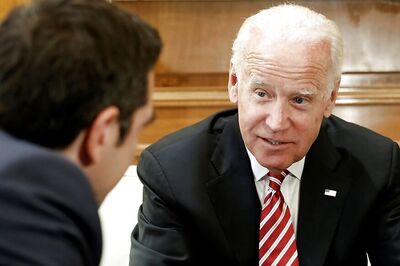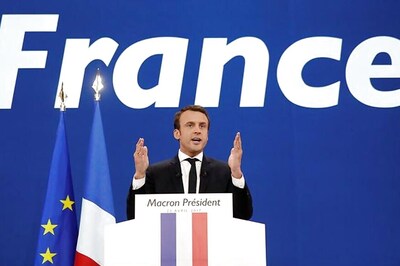
views
Washington: The impact of a failure to raise the US borrowing limit could extend beyond America's borders and damage the global economy, the chief of the International Monetary Fund said on Tuesday.
In a speech at the Council on Foreign Relations in New York, Christine Lagarde urged US political leaders to show the same "political courage" that European leaders demonstrated last week, when they agreed on several new measures to address that continent's debt crisis.
President Barack Obama and Republican lawmakers are at an impasse in negotiations to raise the nation's $14.3 trillion borrowing limit. The federal government is at risk of defaulting on its debt after August 2 if an agreement isn't reached by then.
Credit rating agencies such as Standard & Poor's and Moody's have warned that they will downgrade the United States' top credit rating if an agreement isn't reached. Standard & Poor's has also said it may reduce the nation's credit rating if there aren't steep cuts to the US budget deficit.
Lagarde said a default or downgrade of US debt "would be a very, very, very serious event not just for the United States but for the global economy at large."
US Treasury bonds play a "central role" in world financial markets, the IMF said in a staff report on Monday. US Treasury securities have traditionally been seen as the safest investment in the world. More than $4 trillion of Treasurys are held by governments in China, Japan and other countries, as well as by private investors. That means higher interest rates on Treasurys could have a global impact.
Lagarde said sharp cuts in government spending and other measures to reduce the budget deficit may slow the economy in the short run, but not by much.
IMF research has found that a 1 per centage point cut in the deficit could reduce economic growth by one-half a per centage point over two years. For that reason, policymakers should agree on measures that lower deficits but implement them in future years, she said, when the economy is stronger.
But IMF analysis also shows that the impact of deficit cuts could even be positive, she said, as it could bolster business and consumer confidence.
The US budget deficit is projected to reach $1.4 trillion this year, up from $1.29 trillion in 2010 and just below a record gap of $1.41 trillion reached in 2009.
"No country can have sustainable growth on such an imbalanced basis," she said.
Lagarde took the helm of the IMF on July 5, after her predecessor, Dominique Strauss-Kahn, resigned to fight allegations of sexual assault.
After her remarks, she was asked whether the IMF was "male-dominated" and how she felt being the first woman to head the 66-year old institution.
"I come from universes where it was much more male-dominated than the fund," she responded. She headed the Chicago-based law firm of Baker & McKenzie, where she said only 9 per cent of the partners were women when she arrived.
"I've never felt uncomfortable" at the IMF, she said.
Lagarde brought a sense of humor to her first address in New York, before an audience that included many members of the city's financial community.
Responding to a question about France and Germany's economic policies and how they differed, she quipped, "We will not discuss beer, and we will not discuss food," as the room erupted with laughter.




















Comments
0 comment